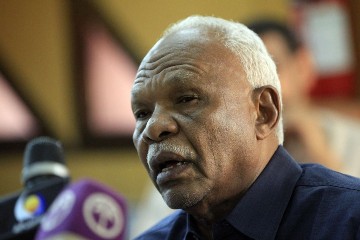Khartoum extends oil shutdown deadline again
August 12, 2013 (KHARTOUM) – The Sudanese government on Monday announced that it will further extend the deadline to stop the flow of South Sudanese crude through its territory, saying that this decision was taken in response to a request made by president Salva Kiir.

The agreement came “after positive developments in the Implementation Matrix led by the African Union chief mediator [Thabo Mbeki] who also brokered the extension”, the official news agency (SUNA) quoted Al-Jaz as saying.
The official pointed out that oil will continue to flow as long as the implementation of all the signed accords is verified.
Last March, the two countries signed a deal detailing the timelines for the implementation of all the nine cooperation agreements signed by the two countries a little under a year ago.
This included a timetable on resuming oil exports that were suspended for more than a year over disagreements on transit fees assessed.
However, the implementation process broke down as Khartoum accused Juba of breaching the deal by continuing its support to rebel groups seeking to unseat Bashir.
As a result, the Sudanese leader ordered al-Jaz last June to begin closing the pipelines carrying oil from landlocked South Sudan. The shutdown was supposed to have been completed last week.
However, AU mediator Mbeki and Chinese special envoy to Africa Zhong Jianhua convinced Bashir to hold it off while committees work to verify rebel support claims made by Khartoum and Juba.
Juba also accuses Khartoum of backing rebels in Jonglei.
The South’s oil export revenues, and the fees it must pay Khartoum for use of the oil infrastructure, are potentially worth billions of dollars to both impoverished nations.
(ST)
